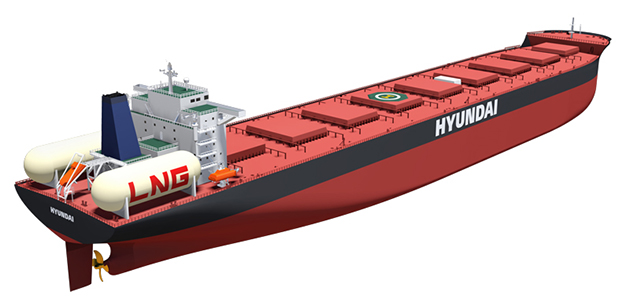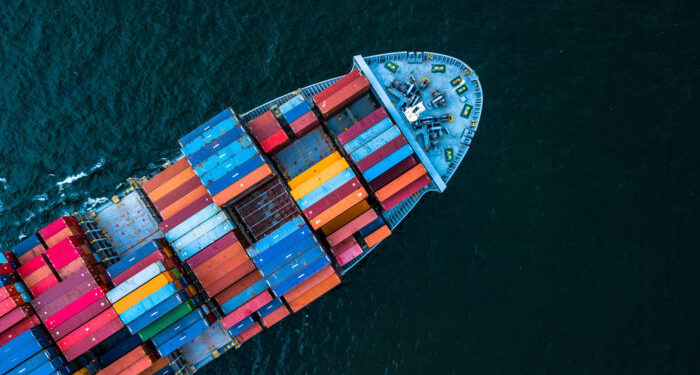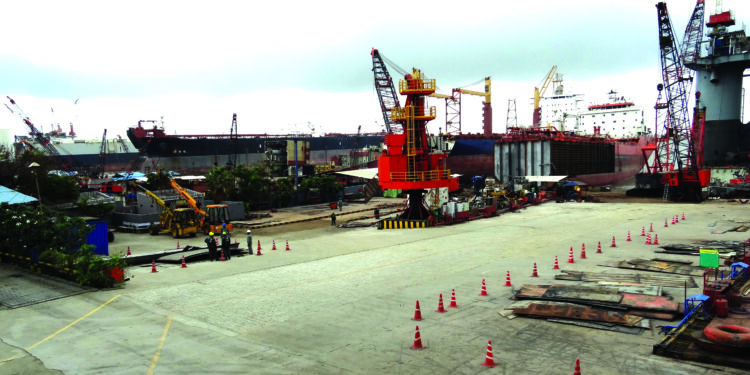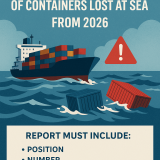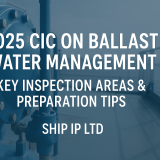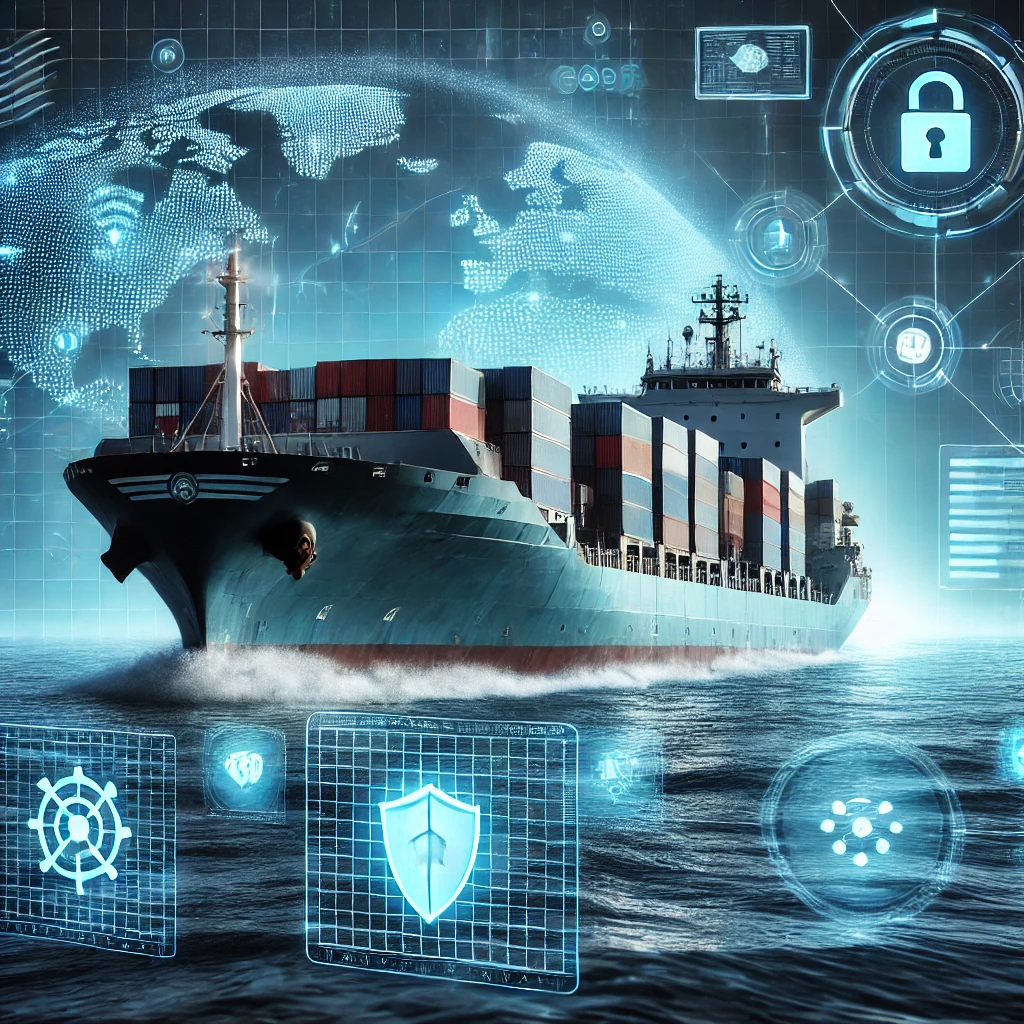In an exclusive interview with SAFETY4SEA, Dr Nikos Mikelis, Non-executive Director, GMS, provides updates of the regulatory scheme surrounding ship recycling and the current situatio n in ship recycling yards.
Dr. Mikelis notes that apart from leading Japanese shipping companies and several well-known west European shipping companies, industry has not confronted the key challenges successfully until today; mainly because is considered as an issue of secondary importance; and he calls for more action in order to set up an international regulatory regime for ship recycling.
SAFETY4SEA: What are the key industry’s challenges with regards to ship recycling up to 2030 from your perspective?
Dr. Nikos Mikelis: The safety of workers and the protection of the environment during the recycling of ships so far has not been regulated by international regulation, and any controls to ship recycling activities have been based on national regulation as enforced by the country where recycling yards operate. Worth noting that this is not different to the situation with the shipbuilding and with the ship repair industries. As however the ship recycling industry is dominated just by three South Asian countries (Bangladesh, India and Pakistan) where weak enforcement and poor working conditions had often led to accidents with fatalities and to persistent pollution, international efforts in the 1990s were made to implement to the ship recycling industry the already existing and in force Basel Convention (“The Basel Convention on the Control of Transboundary Movements of Hazardous Wastes and their Disposal”). This proved unworkable and of very little relevance to the needs of the ship recycling industry and eventually led to IMO developing the Hong Kong Convention (“Hong Kong International Convention for the Safe and Environmentally Sound Recycling of Ships, 2009”).
Whereas most stakeholders have recognized the positive impact that HKC will make, the Convention is still not in-force as not enough countries with the required ship recycling capacity have ratified it. In the meantime, the European Union has brought into force its own version of HKC (the “European Regulation on Ship Recycling (EU) No 1257/2013”, or simply EU SRR). This regional regulation, that applies only to ships flying flags of EU Member States, is implemented by the Directorate General for Environment of the European Commission who has not shown the necessary understanding of the international nature of the shipping and ship recycling industries, that has been implicit in the structure of HKC. Consequently, the EU SRR has been controversial, with the Commission having approved only eight ship recycling yards in Turkey and one in the USA (yards in the EU are automatically approved but for at least the last three decades have been of no practical interest for the recycling of ocean-going ships).
The one fundamental challenge for the industry in the next few years is to help and motivate those that can negotiate the diplomatic path that will bring ship recycling under the umbrella of HKC as a single, global and effective set of international regulations. This will require that the Convention is acceded by the necessary countries that will bring it into force; that the governing body of UNEP’s Basel Convention will formally agree the equivalency between the Basel Convention and HKC, removing this way any legal conflict between the two regimes; and that the European Union will understand that the only way to establish an international standard for an international industry is not to promote competing versions of that standard.
Interested readers can find a full discussion on various aspects of ship recycling in: https://gmsinc.net/gms_new/assets/publications/pdf/2020-01-16rJU_org.pdf
S4S: When do you foresee the Hong Kong Convention to enter into force? Do you expect any major changes? What are your suggestions?
N.M.: HKC will enter into force two years after three conditions have been met. The first condition requires ratification or accession by 15 countries (the Contracting States), and this has already been met. The other two conditions are interlinked, with the second requiring that Contracting States must control at least 40% of the world fleet and the third condition requiring that the recycling capacity of these States must amount to at least 3% of their fleets’ tonnage. Presently there are 16 Contracting States whose tonnage is 30% of the world’s fleet, and whose recycling capacity is 2.5% of the 40% target.
This linking, which is probably unique amongst IMO Conventions, was developed in order to avoid any imbalance between the fleet and the recycling capacity that come under the scope of the Convention at the time of its entry into force. On the other hand, the linking of conditions complicates the entry into force of HKC, as for example, if a number of States with a lot of tonnage accede to the Convention, this could create the situation that not enough recycling capacity can be found to satisfy the third condition on ship recycling capacity. The situation is further complicated by the fact that over the last 20 years or more, just five countries (Bangladesh, China, India, Pakistan and Turkey) have been recycling 97% to 98% of all the tonnage that is recycled in the world. Turkey and India are already Contracting States.
The second and third conditions would be satisfied if China (together with Hong Kong) acceded to the Convention before the summer of 2023 (this is because ship recycling capacity is based on the maximum volume recycled in the ten most recent years and China and India’s recycling output dropped dramatically after 2012). While the Chinese government’s intentions about accession to HKC are not known, under this scenario HKC could potentially enter into force by 2024 to 2025.
Alternatively, the two conditions can be satisfied by Bangladesh’s accession together the accession of one or two large open registries. The government of Bangladesh had decided before the Covid pandemic that the country would accede to HKC in 2023. If that timetable is to remain valid, then entry into force under this scenario could take place by 2025.
Pakistan, being the other remaining major ship recycling country, does not have sufficient recycling capacity to satisfy (together with Turkey and India) the third condition. Furthermore, Pakistan’s recycling industry has yet to upgrade towards the standards of HKC.
The Hong Kong Convention, as any other international Convention, cannot be amended before it enters into force. Thereafter, any changes can only take place in accordance with HKC’s Article 18 (Amendments). The amendment mechanisms of the Convention (which are similar to a number of other IMO Conventions) protect all Parties by ensuring that the introduction of amendments has to rely on the spirit of compromise and cooperation. For example, it would not be possible to force an amendment, for example banning the beaching method, on any Parties that did not agree to it.
S4S: How likely is that the current situation in the existing shipbreaking yards will change following the HK Convention implementation?
N.M.: Although not yet in force, Hong Kong Convention is already being implemented on a voluntary basis by parts of the shipping and the ship recycling industries. The delays of governments to accede or ratify the Convention; concerns over a ban to beaching by the European Regulation; the propaganda of the NGO Platform; and the decline of the Chinese ship recycling market motivated a number of quality shipping companies, first from Japan and then from Europe, to work closely with selected recycling yards in India, which agreed to upgrade their infrastructure, training and procedures so as to comply with Hong Kong Convention. Initially four recycling yards decided to invest in such improvements, on the expectation that they would benefit financially from the custom of quality shipping companies who needed the availability of yards that can recycle ships in compliance to Hong Kong Convention. Following more than one year’s work, towards the end of 2015 the four yards were awarded Statements of Compliance (SOCs) with Hong Kong Convention by Japan’s ClassNK. What followed can be described as a virtuous cycle at work. With growing demand for responsible recycling from shipowners a two-tier market developed with a price differential between normal recycling and responsible (or green) recycling. The four compliant yards enjoyed demand for their services, which was reflected in profitable contracts. Profiting from compliance with the Hong Kong Convention incentivised numerous other recyclers in Alang to start upgrading their facilities and seek Statements of Compliance for their yards. Although the majority of the recycling industry in Alang was openly hostile towards the Hong Kong Convention before 2015, attitudes have now changed and presently more than 80 yards in Alang have obtained Statements of Compliance (SOC) with HKC from IACS classification societies, while most of the remaining yards are in the process of upgrading to meet the technical standards of the Convention, also in line with directives by India’s government who acceded to the Convention in November 2019.
The Hong Kong Convention has therefore already led to a real and meaningful transformation of India’s yards. There has been limited change in Bangladesh where only a small number of yards have addressed or are addressing their compliance, and even less improvement in Pakistan. The concern now is that India, with its higher costs of compliance, is falling behind Bangladesh and Pakistan in attracting tonnage for recycling. As the number of shipowners who are committed to recycling their ships only in HKC compliant yards has not grown in line with the supply of compliant recycling capacity, the yard owners in Bangladesh and Pakistan are not being motivated to invest in upgrades of infrastructure, training of the workforce and systems. Furthermore, the continuing reluctance of the European Commission to recognise and approve yards in South Asian countries is compounding the problem by removing the incentive for the yards to upgrade and for owners of European flag ships to support upgraded yards in South Asia.
S4S: How would you describe the overall situation at EU shipbreaking yards? Has there been any improvement with regards to safety and working conditions following the EU Ship Recycling Regulation?
N.M.: Let me provide some background before answering the question.
The European Union is by far the world’s largest net exporter of scrap steel. The vast majority of the ferrous scrap exports from the European Union go to Turkey, with some quantities also being exported to Egypt, India, China and Pakistan. It makes no sense whatsoever to recycle large ships in Europe to produce scrap that will have to compete with the large quantities of other European ferrous scrap in order to be sold and transported to countries most of which already recycle ships. Cosequently, Europe has a small ship recycling industry that takes care of the recycling of small boats, inland waterway vessels, any damaged or wrecked ships, and some offshore structures. This is reflected in the official data used by the IMO which show that the EU’s combined maximum annual recycling volume (including Norway and the UK) was only 0.58% of the world’s capacity, while in 2019 the total tonnage recycled in the EU was 42,954 GT, representing just 0.35% of all tonnage recycled in the world (equivalent to a little more than a Panamax vessel). Notwithstanding these facts, environmental activists and some European politicians have been promoting, on the back of the EU SRR, the development of facilities for the recycling of large ships in Europe, claiming that this will provide best practice ship recycling services to international shipping and will also create needed jobs and economic prosperity.
The EU Ship Recycling Regulation applies a stricter regime for the approval of non-EU based yards involving audits by the European Commission and its consultants. Conversely, yards based in the EU are authorised by their national authorities. It is therefore very unlikely that the introduction of the EU SRR will make any difference to the technical standards under which EU based yards operate, which in any case should already have been sufficiently good.
S4S: In your view, has the industry been successful in addressing ship recycling issues? What should be the next steps?
N.M.: Assuming that by “the industry” the question refers to the shipping industry, then the answer is mostly negative. With the exception of the leading Japanese shipping companies and of a number of well-known west European shipping companies, the shipping industry in the main has not confronted the challenges that have arisen with the efforts to set up an international regulatory regime for ship recycling.
Presently, for the sake of $20 to $30 per LDT, the majority of shipowners continue to sell their end-of-life ships to non-compliant yards, and thus failing to bring forward the implementation of HKC as the single global standard. Waiting for its entry-into-force is unfortunately just an excuse.
Furthermore, the shipping industry, with a few shining exceptions, has avoided challenging the European Commission’s misguided, impractical and of questionable efficacy policies. Most likely this is because to the shipping industry ship recycling is an issue of secondary importance compared to the bigger headaches (first ballast water management; then low Sulphur fuels; now emissions).
The views presented hereabove are only those of the author and do not necessarily those of SAFETY4SEA and are for information sharing and discussion purposes only.
https://safety4sea.com/cm-industry-needs-to-give-to-ship-recycling-regime-the-attention-it-deserves/

